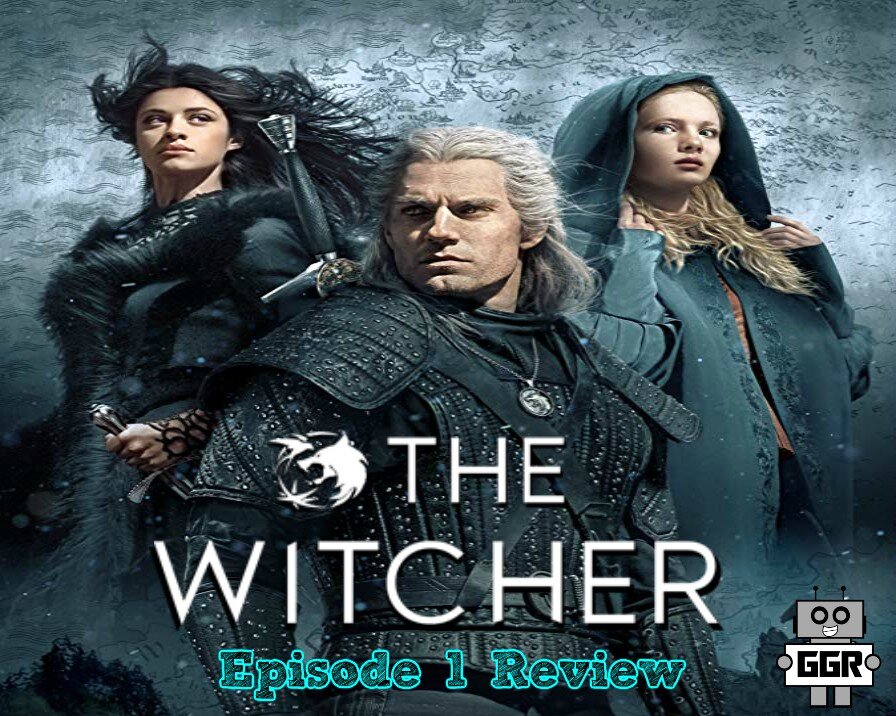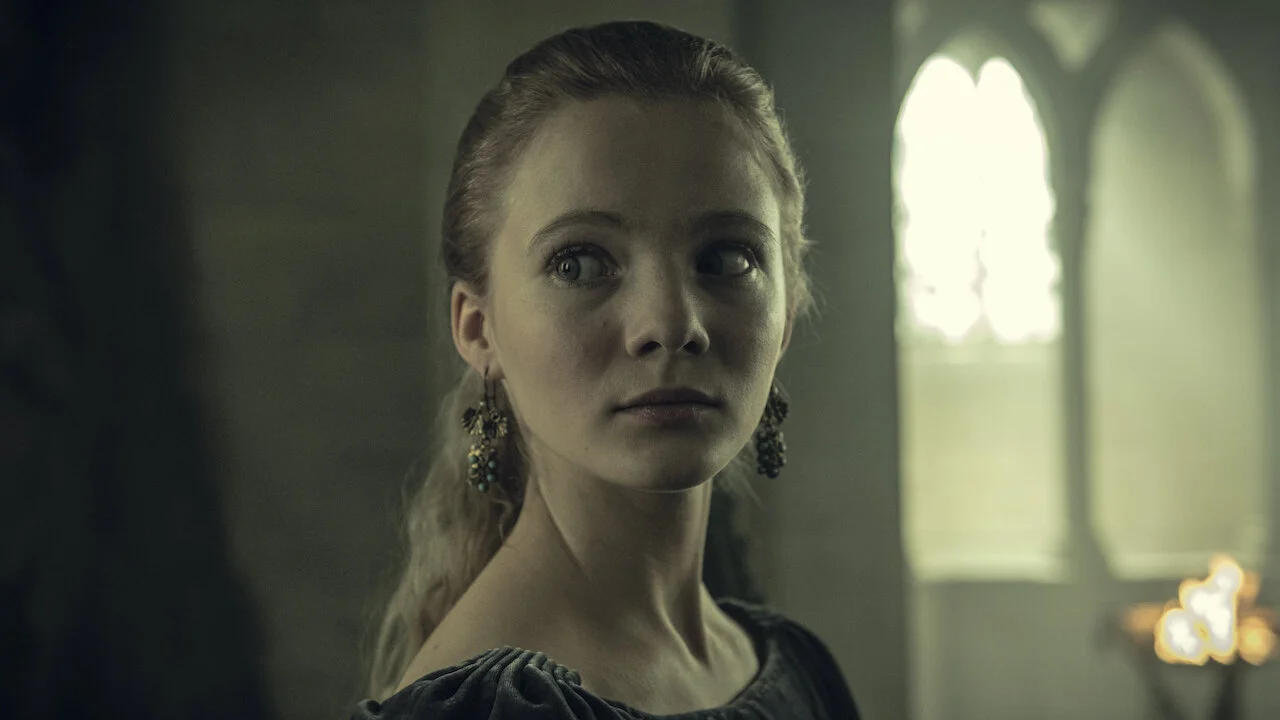The Witcher: Episode 1 Review
After months of waiting, with a lot of promotional pictures of questionable quality and trailers which raised more questions than they answered, the time has come: The Witcher has dropped on Netflix. I was lucky enough to catch the first two episodes after a day of last-minute Christmas shopping and decorating to welcome Santa to town.
And let me tell you, I am a huge fan.
I went into the show with mild trepidation. For every review that said this was an outstanding show came another that complained about The Witcher’s lack of accessibility and how it throws you into a world without explanations or exposition. I heard that the first episode was a confusing mess that would leave most viewers cold. I am happy to report that I found that to be untrue.
We begin the first episode with a battle between Geralt of Rivia (Henry Cavill, Man of Steel) and a monster. It is well shot and exciting, a good beginning to the series. Following this, he enters the town of Blaviken, where he is immediately set upon by men in a tavern. They take a disliking to him because of what he is, a Witcher and a mutant that is inhuman to them. Just as we are certain that a fight is about to break out, we are introduced to a character named Renfri (Emma Appleton, Dreamlands), who calls her men off and buys Geralt a round of drinks. They talk briefly about being outcasts, him because of his mutations and her because she was born under a bad omen. The chemistry between the two characters is spot on and there is a fair amount of humor in this scene. It is refreshing in a time of grimdark fantasy to have a bit of humor show up in a fantasy show and this is one of the shows strengths.
Geralt is then summoned by the wizard Stregobor (Lars Mikkelsen, House of Cards) via the alderman’s daughter Marlika (Mia McKenna-Bruce, The Fourth Kind). She is a fun character who is curious about the life of the witcher and wants to travel the world killing monsters just like him. Entering Stregobor’s tower, the greys and browns of Blaviken are replaced by the sunny, colorful world of the wizard’s tower. It is reminiscent of Dorothy entering Oz in the classic film. Stregobor wants to hire Geralt to kill Renfri, claiming that she is the worst kind of monster: the human kind. This is when we are first introduced to the grey morality of Geralt. He doesn’t consider the lesser of two evils any less evil. He states, before leaving the wizard, that he believes that the best choice is no evil.
Then we are whisked away to the shows second storyline.
Cintra is on the brink of war, and Princess Cirilla (Freya Allan, Bluebird) along with her grandparents Queen Calanthe (Jodhi May, Last of the Mohicans) and King Eist (Björn Hlynur Haraldsson, Undercurrent) are busy knighting nobles. There is some very funny back and forth between Eist and Ciri, with Calanthe chiming in occasionally to chide them for being disrespectful during the ceremony. Again, the humor in this show is a breath of fresh air and the trio feel like a family from the get go due to their great chemistry.
We then jump back to Geralt, who is approached by Renfri in the woods. This scene includes some of my favorite dialogue, a meditation on the difference between being considered a monster and becoming the monster they say you are. It is a quiet moment that gets to the show’s central tenet; that monsters aren’t inherently evil until they allow themselves to be.
Back to Cintra, we get the show’s first big action scene. Calanthe and Eist are on the battlefield, charging towards the Nilfgard army. An aside here: it is great to see so many strong female characters not being sidelined by their male counterparts, even in battle. Both Calanthe and Eist are great warriors and you can tell they have fought many a battle in their past. This one, however, is a lost cause. Nilfgard overpowers the Cintra army, killing Eist and grievously wounding Calanthe.
The scene is well shot, capturing the chaos of battle while focusing on the main characters. This is intercut with Ciri petulantly arguing with her protectors as she is forced to wait in the castle for their return. Ciri wants to fight alongside her grandparents, who find it more important to keep her away from it: for their protection and perhaps her own.
Geralt, meanwhile realizes that Renfri has seduced him and used him as a means to an end. She goads him into a fight in Blevkin, forcing him to choose between her need to kill Stregobor and his own need not to get involved. He enters the town and is immediately set upon by Renfri’s men. And we finally get to see the Witcher in action. Through a combination of awesome swordplay and magic, he overcomes the men easily and in a gory manner. Suddenly Renfri shows up with Marlika as her hostage. Geralt and her banter back and forth for a moment, which turns into a sword fight between them.
The fight is elegantly choreographed and almost balletic, ending in the death of Renfri. Stregobor enters and lays claim to the body, causing Geralt to hold him at swordpoint, telling him not to touch the body. The wizard shows his influence over the crown, perhaps using magic to control them, causing Geralt to be stoned and thrown from Blaviken, while Stregobor yells after him, “you’ll never know if you made the right choice.”
Meanwhile, Cintra is under siege. Nilfgard stands at the gates, ready to torture and kill all the citizens and, it is revealed, to capture Ciri. Ciri is whisked from the castle while those inside poison themselves rather than face the Nilfgard troops. This leads to a beautiful shot of Calanth standing at her window watching Cintra burn, just before she tosses herself to the ground far below. Ciri is captured by the Nilfgard leader (Eamon Farren, The ABC Murders), which is when we get the first taste of her true powers. She screams causing the very earth to split, allowing her to escape into the woods. It is here we are given Renfri’s prophecy: that Geralt will find a girl in the woods and their destiny will be intertwined. And there, the episode ends.
Woof. That is a lot of ground covered in a one hour episode, but it is a testament to the writers that at no point did the show come across as confusing or hard to follow. Yes, names were dropped as if we should know them and we were thrown into the middle of the action, but it was so well done, giving exposition only where necessary, that it was easy to keep track of the story. In fact, them putting us in media res made the world feel lived in and alive, which is as deft a bit of world building as I’ve ever seen. This, along with the natural chemistry between characters, the large amount of humor in the show, and the very well-shot action makes The Witcher a must watch. I am a huge fan and can’t wait to see what happens next.
Benjamin Shapiro is a screenwriter, playwright, and poet. He has won awards for horror, comedy, and drama for both stage and screen. He is also a filmmaker and the founder of Trash Messiah Pictures.







